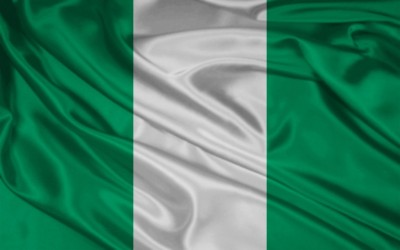
The House of Lords Nigeria just turned 50 and to mark this auspicious occasion, a book entitled NIGERIA: THE CHALLENGES OF GROWTH AND DEVELOPMENT was presented to the public and the guest of honor was his Excellency the Vice President of the Federal Republic of Nigeria Professor Yemi Osinbajo. The House of Lords Nigeria was formed by young professionals in the 1970s. These were mostly young university dons, civil servants and other upwardly mobile professionals. The name House of Lords was a jovial mimicry of the exalted House of Lords in England which is the upper house to the House of Commons and its judicial committee is the highest court in England.
Over the years, some of its member had passed on but their memories continued to linger on and in some cases, these founding fathers have been replaced by their sons and in my own case, my late brother Professor Kayode Osuntokun had apparently been replaced by my humble self, without prejudice to my nephew Segun joining us in the House of Lords as soon as he is invited. The House of Lords Nigeria is a social and public-spirited association devoted to the services of man and country. They generate ideas that are in the public space which government can take a look at and see what can be done to put these ideas to use for the good of the country.
The name House of Lords has sometimes created problems for those who think that the house is a secret society. I remember when a member passed on and the officiating bishop said that he would not allow the casket of a member of a secret cult to be brought into the church, he was however told and persuaded that the House of Lords was not a secret cult.
There was also another occasion when the leader of the House of Lords Nigeria was being conferred with a chieftaincy title, members of the House of Lords went to felicitate with him. The officiating cleric announced to the entire church that the town was so blessed that members of the House of Lords had flown in from England to celebrate the occasion with them. This was a cause for big laughter afterwards. Members of the House of Lords Nigeria, are so distinguished that they compare favourably with its counterparts in England.
I had the distinction and privilege to review their publication which was presented to celebrate their 50th year anniversary. The book NIGERIA: THE CHALLENGES OF GROWTH AND DEVELOPMENT is a must read.
This is a sequel to an earlier book of the House of Lords Nigeria entitled Bumpy Ride to the 21st Century. This new book like the previous one is a collection of lectures presented by distinguished Nigerians during The Lords annual May Day luncheon and lecture. The current book is made up of 11 chapters. Writers include late Professor Emeritus J.F. Ade Ajayi: “Towards African Renaissance in the 21st century”; Professor Itse Sagay: 3 Anatomy of Federalism with special reference to Nigeria”; Chief T.A Akinyele 3 Before the sun sets”: A glimpse into life in retirement in Nigeria”; Professor Emeritus O.O Akinkugbe CFR NNOM: “The wages of curiosity”; Chief Folake Solanke SAN, CON: “Women in Politics”.
Engineer V.I Maduka: 3 P&T, GSM, and beyond”; Professor Adigun Agbaje: “Interrogating the future: Past, present and the architecting of tragedies”; Professor Peter Okebukola, OFR: “Rhyme Reason and Rhetoric of Education”; late Professor Emeritus T.N Tamuno NNOM: “Quo Vadis Nigeria”; Professor Emeritus Akin L Mabogunje: “My Lords, what is the state of your manors”; and finally, Professor Oyewale Tomori NNOM: 3 Transforming Nigeria into a changed Nation”
Some years ago my son who is an electrical engineer based in Atlanta Georgia Unites states came home on a short visit during which time he kept asking me questions about our apparent failure as a country. The most apparent failure was in the area of power generation and distribution, among others. Like a typical historian, I tried to place our failure in the context of our political evolution as a country. I did not want to bore him with too many details. So I started from 1959 federal elections.
I said the failure of Obafemi Awolowo’s Action Group and Nnamdi Azikwe’s NCNC to form a coalition government was the beginning of our problem. If this had happened the better prepared leadership of the country would have emerged to lead us on a faster trajectory of modernization. This interpretation may be disputed by those who genuinely believe such a government would have alienated the larger part of the country. This may be true and in the social science to which history belongs there are no answers with mathematical exactitude. This was not even the point of the story. After one or two days of power cuts and why we have not developed becoming a recurring decimal in my sons discussion with me and I then kept talking about Awolowo, Azikwe, Ahmadu Bello, Abubakar Tafawa Balewa, my son said dad “who the hell is this Awolowo you are talking about?” I was shocked. I said “so you have never heard about Awolowo before?” He answered “no”. I forgot he was born in 1976. “So who have you heard about?” He said “Buhari and Idiagbon”. Then he challenged me to write a short and readable political history of Nigeria which any intelligent scientist could read and understand. I promised to do so time and electric power permitting!
NATION
END

Be the first to comment